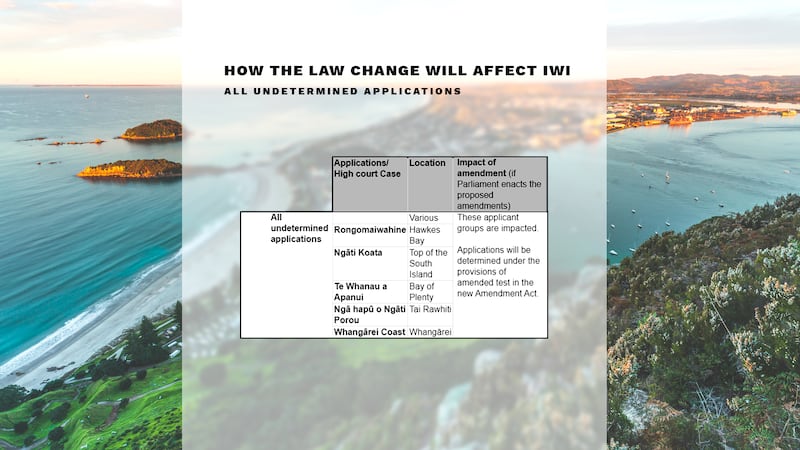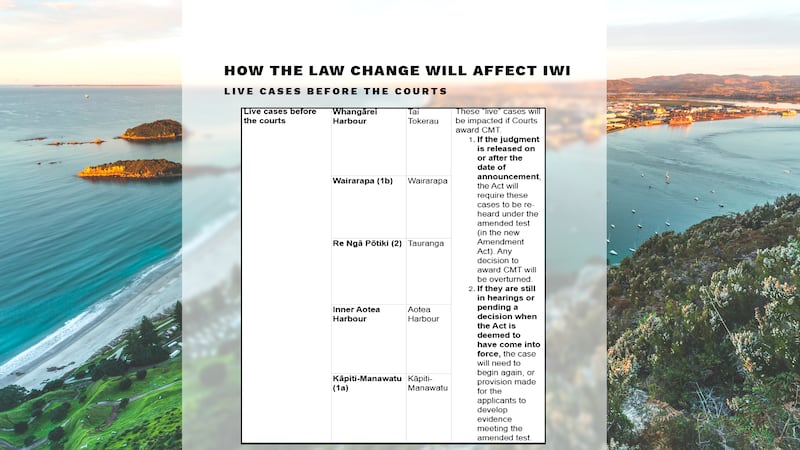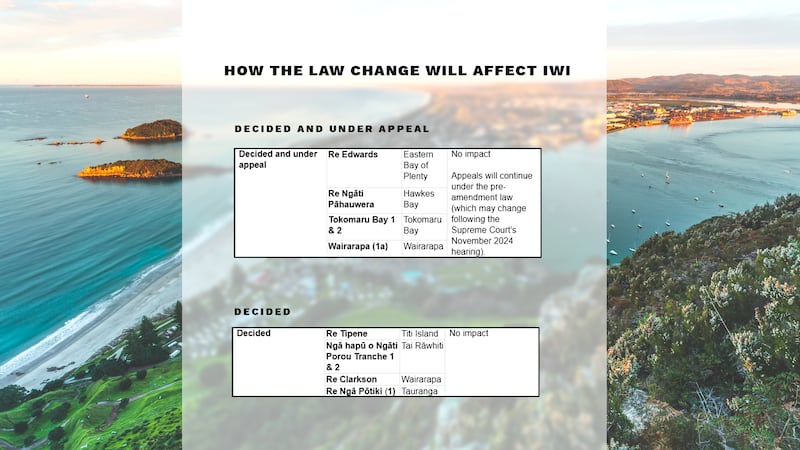The coalition government is proposing legislation that would nullify a Court of Appeal decision and amend the Marine and Coastal Area Act to restore Parliament’s test for customary marine title.
But it says existing customary marine title decisions will continue to be recognised.
This is the third revision of the legislation since the Helen Clark Labour government created the Foreshore and Seabed Act in 2004, which vested the ownership of the foreshore and seabed in the Crown, extinguished Māori customary rights, and prescribed a process by which limited customary rights could be recognised.
That led to Labour MP Turiana Turia quitting the party and establishing Te Pāti Māori.
The act was repealed in 2011 and replaced by The Marine and Coastal Area (Takutai Moana) Act, which established a special category of land – the common marine and coastal area – and assigned a ‘no ownership’ status to that area. The 2011 Act also provided whānau, hapū and iwi Māori with the ability to seek legal recognition of their customary interests.
Treaty Negotiations Minister Paul Goldsmith says section 58 of the act required an applicant group to prove it had exclusively used and occupied an area from 1840 to the present day, without substantial interruption.
“However, last year the Court of Appeal in Re Edwards made a ruling, which changed the nature of the test and materially reduced the threshold.
“The government does not agree with this change, and wants to ensure the wider public has confidence these tests are interpreted and applied consistently.

“Customary marine title gives the holder valuable rights, including refusing resource consents in the area, such as for renewals of some private assets like wharves, or aquaculture expansion.
“All New Zealanders have an interest in the coastal waters of our country, so Parliament deliberately set a high test in 2011 before customary marine title could be granted.
“Therefore, as part of the National-New Zealand First coalition agreement, the government has agreed to propose legislation that will ensure these tests for applications directly with the Crown or through the courts are upheld as originally intended.”

These measures include:
- Inserting a declaratory statement that overturns the reasoning of the Court of Appeal and High Court in Re Edwards, and the reasoning of all High Court decisions since the High Court in Re Edwards, where they relate to the test for customary marine title.
- Adding text to section 58 to define and clarify the terms ‘exclusive use and occupation’ and ‘substantial interruption’.
- Amending the ‘burden of proof’ section of the act (section 106) to clarify that applicant groups are required to prove exclusive use and occupation from 1840 to the present day.
- Making clearer the relationship between the framing sections of the act (the preamble, purpose and Treaty of Waitangi sections) and section 58 in a way that allows section 58 to operate more in line with its literal wording.
“The cabinet also agreed that the amended section 58 test should be applied from today’s date, if enacted. This will be reflected in the proposed legislation.
“This means existing CMT decisions will continue to be recognised.
“All undetermined applications as of today’s date, would, if Parliament enacts these amendments, be decided under the clarified test.
“This would include the limited number of applications currently before the High Court that have been heard but where there are no judgments.
“The government acknowledges that until Parliament legislates to amend the act that the courts are required to apply the Court of Appeal’s decision. If enacted, judgments made after today will be overturned.
Goldsmith says the draft of the bill is underway. The government’s timetable is to seek the cabinet’s approval for the introduction of the amendment bill in mid-September.
“The act enables the legal recognition of Māori customary rights while protecting the legitimate interests of all New Zealanders in the marine and coastal area.”




